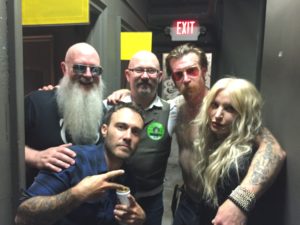What is PRMD?
PRMD stands for “Playing-Related Musculoskeletal Disorders” among musicians. Researchers asked a large cohort of musicians about their experience with PRMD’s and the results were significant:
Lifetime history of injuries averaged out to 68%.
Previous 12-month history of PRMD’s was 46%
7 Day history of PRMD’s was 23%
Most respondents reported multiple PRMD’s.
Upper body PRMD’s were most common by region.
Wrists (25%) and low back (24%) were the most common body “parts” affected.
PRMD’s occur most often in musicians who practice or play many hours each week. There were 173,300 professional musicians in the United States in 2014 according to the Bureau of Labor and Statistics. In recent surveys, nearly three-fourths of professional musicians reported past injuries and pain that affected their playing.
The Musical “athlete”
Professional musicians are like athletes. Practice, practice, practice, perform. Repetition of fine and gross motor movements slowly accumulates stress and strain over time, leading to the proverbial straw that breaks the camel’s back. This tends to happen faster in musicians who fail to do the following:
Warm-up and cool down.
Seek help at the first sign of a problem.
Recognize that symptoms have a cause.
Stop playing when problems arise. Playing through pain is a bad idea.
Look at the big picture rather than short term needs and desires.
Remain patient and follow through with care.

Dr. Lou & Mumford and Sons.
Toyota Vs. Ferrari
Toyotas are great cars. So are Ferraris. They are both great for obvious reasons, but they are not created equal. Toyotas are more simple, more reliable, and require less maintenance. Ferraris are high-performance machines with finely tuned systems that need constant maintenance and won’t run normally if even a single hair is out of place. Professional musicians need to treat their bodies like Ferrari owners are supposed to care for their cars. Otherwise, they lose value and performance quickly.
Common PRMD’s
Tennis elbow (lateral epicondylitis)
Low back pain
Neck pain
Shoulder pain
Neuropathy (nerve pain)
Paresthesia (numbness)

Dr. Lou with The Eagles of Death Metal. EODM Rocks Hard!
How To Reduce Risk of PRMD’s
To repeat:
Warm-up & cool down before and after playing. Stretching, heat, light playing, get the blood flowing! Think “PRICE”
Protection, Rest, Ice, Compression, Elevation: when in doubt, try this while waiting for your doctor’s appointment.
If you have pain or symptoms of a PRMD, something is causing the pain. Seek help immediately to help protect your passion and career.
Do NOT play through the pain. It’s quite likely that playing is what caused the problem in the first place. PRMD’s don’t get better by playing through, they get worse.
Remember your future. Invest the time and effort now to protect your future of playing. Refusing to acknowledge, or being understandably fearful of acknowledging a problem could lead to losing your ability to play altogether. Remain patient, follow through with your care, get strong, and go back to playing with a vengeance.
But Dr. Lou, I can’t just do nothing while I’m healing my PRMD!
Don’t do nothing! Study music. Listen and analyze music. Write music. Communicate with musicians. Work on your music business. The ever-wise Gary Vaynerchuk once said that part of the reason that so many great artists are not successful is that they aren’t great business people… and the reason so many great business people are not successful is because they lack the creativity of a great artist.
Dr. Lou Jacobs is a chiropractor – acupuncturist in Portland, Maine who has been specializing in the health and injuries of musicians and their crews for 20 years. Dr. Lou is available for telemedicine consultations for music-related injuries and health problems. Among those he has permission to mention, Dr. Lou has worked with Mumford & Sons, The Pixies, Steve Vai, Tommy Emmanuel, Ziggy Marley and the Melody Makers, Blackberry Smoke, Gogol Bordello, Trey Anastasio, and Edward Sharpe and the Magnetic Zeros. PHOTOS
